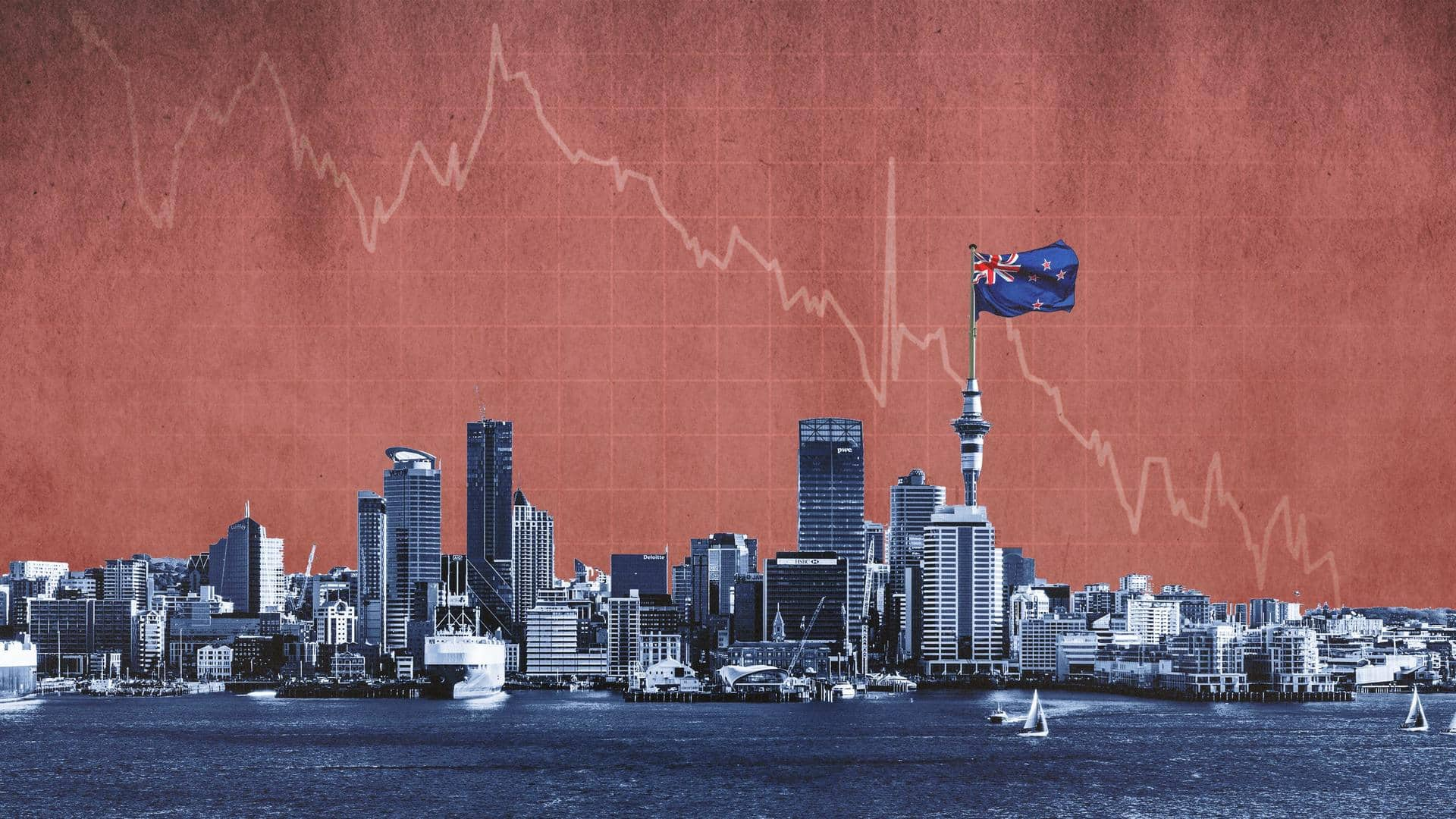
New Zealand slips into recession, currency drops
What's the story
As per the government data published on Thursday, New Zealand reported a 0.1% drop in gross domestic product (GDP) in the first quarter, as its central bank decided to embark on one of the most aggressive rate hike cycles in the world. The data from Wellington marks a technical recession for the economy after reporting a revised 0.7% fall in the 2022 final quarter.
Details
Main reasons behind recession in New Zealand
Severe flash flooding occurred across Auckland in January, and the destruction caused by Cyclone Gabrielle in February heavily impacted the economy. As per government estimates, it'll cost nearly 15 million New Zealand Dollars (NZD) to clean up the damage induced by natural disasters. Notably, this is also New Zealand's first recession since 2020, when the coronavirus pandemic shut down borders and blocked exports.
More details
Political play around New Zealand's economic situation
In addition, center-left Finance Minister Grant Robertson publicly admitted four months before the general polls that the country entering recession was not at all a surprise. "We know 2023 is a challenging year as global growth slows, inflation has stayed higher for longer, and the impacts of North Island weather events continue to disrupt households and businesses," Reuters quoted Robertson as saying.
Know more
Red lights are flashing for New Zealand economy: Opposition minister
With the economy shrinking, inflation hitting 6.7%, and the October 14 poll approaching, the center-right opposition was quick to blame the government for the country's current state. Reportedly, manufacturing, agriculture, services, and transport all reported significant declines. "Red lights are flashing for the New Zealand economy, which has shrunk even while inflation rages on," Nicola Willis, opposition Finance Spokesperson, stated.
Further information
International Monetary Fund's warning for New Zealand's economy
Ahead of the GDP release on Wednesday, the International Monetary Fund (IMD) said, "New Zealand's economy is in the midst of a necessary, policy-induced slowdown following the strong post-pandemic recovery." As per the news outlet CNBC, the IMF also cautioned the central bank against using monetary policy easing measures, stressing that it should still leave the door open for more rate hikes ahead.